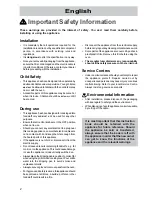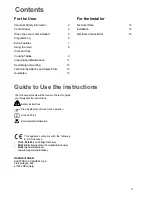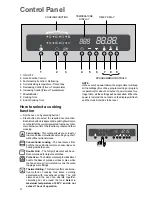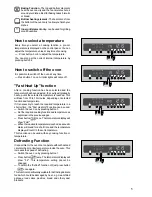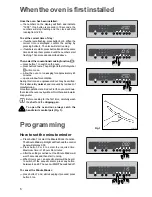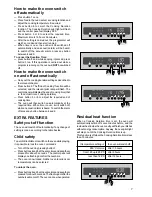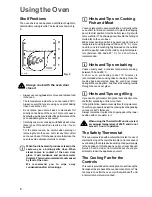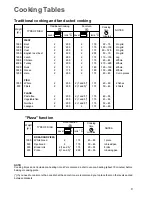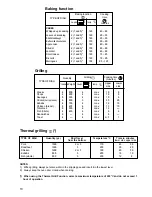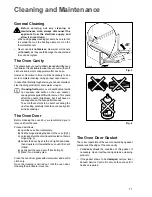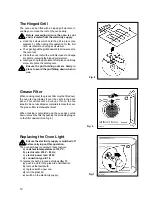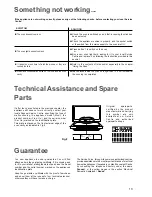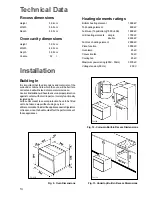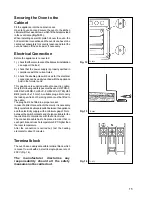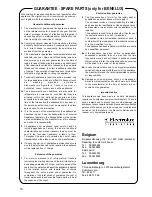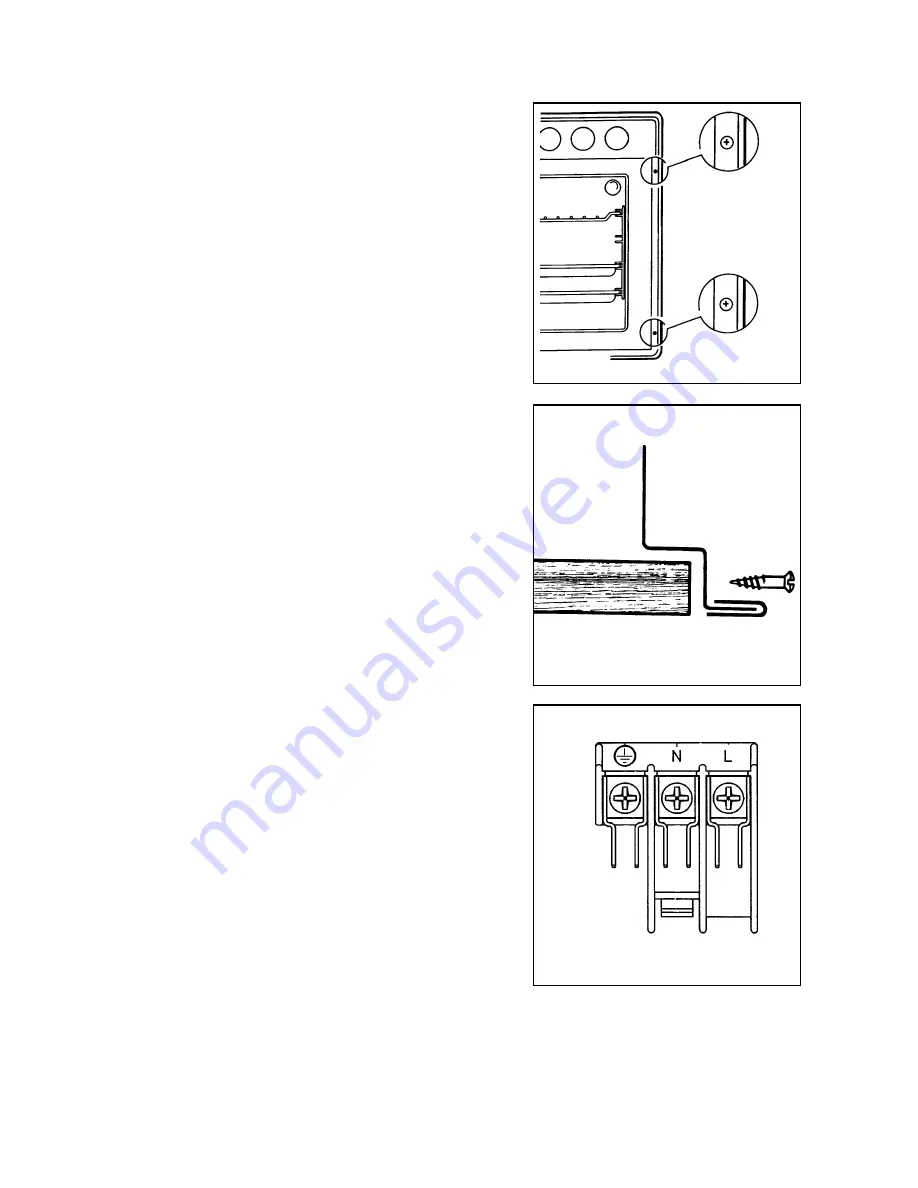
15
Terminal block
The oven has an easily accessible terminal block, which
is meant to work with an electric single-phase rate of
230 V (Fig. 14).
The manufacturer disclaims any
responsability should all the safety
measures not be carried out.
Fig. 14
Fig. 13
Fig. 12
Securing the Oven to the
Cabinet
Fit the appliance into the cabinet recess.
Open teh oven door and secure the oven to the kitchen
cabinet with four wood screws, which fit the holes provided
in the oven frame
(Fig.12-13).
When installing an electric plate hob over the oven, the
hob's electrical connection and the oven's one have to be
carried out separately, for security reasons and to let the
oven be taken off the unit easier, if necessary.
Electrical Connection
Before the appliance is connected:
1) check that the main fuse and the domestic installation
can support the load;
2) check that the power supply is properly earthed in
compliance with the current rules;
3) check the double pole switch used for the electrical
connection can be easily reached with the appliance
built in the forniture unit.
This appliance is supplied without connection cable.
Only the following cable types must be used: H07 RN-F,
H05 RN-F, H05 RR-F, H05 VV-F, H05 V2V2-F (T90), H05
BB-F (section 3x 1,5 mm
2
). A suitable plug, able to carry
the load specified on the rating plate, must be fitted to
the cable.
The plug has to be fitted in a proper socket.
In case of a direct connection to the mains, it is necessary
that you install a double pole switch between the appliance
and the electricity supply, with a minimum gap of 3 mm.
between the switch contacts and of a type suitable for the
required load in compliance with the current rules.
The connection cable has to be placed in order that, in
each part, it cannot reach a temperature 50 °C higher than
the room temperature.
After the connection is carried out, test the heating
elements for about 3 minutes.
FO 0039
FO 0986
FO 2159


